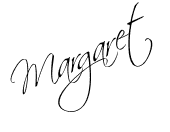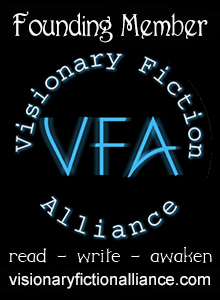Is being a competent writer rather than a great writer okay?
Yes, says Stephen King in A Memoir of the Craft On Writing. Competent writers stand a chance of becoming good writers. And in most cases, that’s enough.
Yes, really.
Most writers, according to King, will not become great writers, but they can become darn good story tellers. And good stories are what the public – and therefore book-buyers – want. They always have, and they always will.
Welcome to the circle, all ye good story tellers. But be prepared to work your tails off.
A Memoir of the Craft On Writing
Though I’m reading Stephen King’s A Memoir of the Craft On Writing for the second time, it seems like the first.
That’s because I’m coming at it from a different place, with a different attitude.
You see, now that I have thirteen years of writing fiction under my belt, I come closer to understanding what King is trying to say.
Especially when it comes to talent and plot.
Got Talent?
King says that writers form themselves into a pyramid of creativity, with bad ones at the bottom, competent ones in the middle, really good writers at the next level, and the great writers – “the Shakespeares, the Faulkners, the Yeatses, Shaws, and Eudora Weltys” – at the top.
He believes it is impossible to make a competent writer out of a bad writer and a great writer out of a good one, but that it is possible to make a good writer out of a competent one.
On my first reading of A Memoir of the Craft On Writing, I took objection to King’s opinion on bad, good, and great writers. In fact, I got mad. How dare he? With enough hard work and dedication, anyone could become a great writer.
As a more experienced and therefore humbler writer, I know that I am not, and will never be, what King calls a “genius, divine accident, or fortunate freak.” I’m either missing the genetic capability of becoming a top-level talent, or my feet aren’t planted in the right soil. I’m okay with that. In fact, I’m quite happy to leave this lofty height to the Shakespeares and Faulkners of the world.
What my experience has taught me, however, is that I am a competent writer. And hopefully, during my life time, I will prove to be a very good one.
But becoming a good writer, King cautions, takes more than simply mastering the fundamentals of grammar and style. It also takes “lots of hard work, dedication, and timely help.” At least that’s how he puts in when he’s playing nice.
When he’s putting it “King style,”it goes more like this: “…if you don’t want to work your ass off, you have no business trying to write well – settle back into competency and be grateful you have even that much to fall back on.”
Ouch.
On the bright side. If you have talent, you won’t consider writing as work (at least not all the time), but a natural expression of yourself. And if you work really hard and are really lucky, you might become Stephen-King-good or Dean-Koontz-good or Jodi-Picoult-good.
Everyone’s entitled to dream, right?
On to plot.
Plot Not!
Huh?According to A Memoir of the Craft On Writing, plot not.
King believes that novels consist of only three parts: Narration, description, and dialogue.
He distrusts plot. For one thing, he says, our lives are largely plotless (no matter how carefully we may plan), and for another, plotting and the spontaneity of real creation aren’t compatible.
Though I love my plotting charts and diagrams (I use colored post-it notes and markers), King has a point here.
Like Robert Olen Butler in, From Where You Dream, King believes that, at the very least, the first draft of your story should emerge from the unconscious (while driving, showering, blow-drying your hair, dreaming), not from the mind. Story should be surrendered to rather than willed. He believes that good story comes from writing honestly – not by forcing characters to fit a plot, but allowing them to say and do what they would naturally say and do as situations arise.
Situation, not plot, should drive the story.
According to King, if you pay attention and tell the truth, the rest of the story will take care of itself. “And why worry about the ending anyway?” he says. “Why be such a control freak? Sooner or later every story comes out somewhere.”
King sums up his advice on good storytelling by saying that practice is invaluable and that honesty is indispensable. “Skills in description, dialogue, and character development all boil down to seeing or hearing clearly and then transcribing what you see or hear with equal clairty.”
Good advice from a: Genius? Divine accident? Fortunate freak?
You decide.
As always, thanks for stopping by,



“Though I’m reading Stephen King’s A Memoir of the Craft On Writing for the second time, it seems like the first.”
I have to reread this as well for exactly the same reason as you. That, and I also enjoy his voice so much. I oftentimes refer to myself as a storyteller first and writer, second. I forgot that King mentioned this aspect of writing. I also agree that great writers are born, such a great musicians and painters. The same goes for storytellers.
After my experience, I still disagree with King on plotting, especially since I’m right brain dominant! Plotting isn’t anything set in stone, and I already expressed how some of us see the whole story first, so plotting is necessary…and the natural way to write for some of us. It also doesn’t make a story any less natural. That doesn’t mean we plotters don’t write from the subconscious. I never sit at my computer until I visualize a scene first, and most of my breakthroughs happen while at the gym!
In Jessie’s Song, the scene with the row of gigantic monitors, and the birthing tank in Damon’s vision in Unison both came from my subconscious. I doubt I would’ve come up with them while sitting at my computer!
I do agree with King that a first draft should come from the sub-conscious. Adhering to plot structure as if it’s some sort of divine instruction manual can make a story feel flat and contrived. In the end, it’s all about how we write naturally.
Great post!
Hi Eleni. I agree that plotting not only works, but is a necessity, for many writers. Plotting is a weakness of mine, and I pay the price when it comes to rewrites. Often I don’t see the whole story, and I have to do a lot of filling in, reorganizing, and cutting. Kings biggest gift to writers, as I see it, is about writing from sub-conscious, especially in the first draft. That’s where writers become artists, as well as good storytellers.
That was so interesting. I need to read that book. It does take work, lots of works. You have and do attest to that. Keep writing my friend. 🙂
Hi Susan. Yes, the writing goes on. It’s hard to judge when a story is ready to share with the public. No book is ever perfect, but I don’t want to let it go before it’s the best it can be. Tough call.
Many years ago my husband and I listened to the audio edition of Stephen King’s wonderful book. I think I should read it again. Thanks for reminding me of some of the important things he had to say.
You’re welcome, Rosi. It’s a book worth re-reading.
Margaret,
I love this post!! It came just when I was struggling over the plot of my new novel. I, like you, will probably continue some form of organization (it keeps me sane), but I’m going to try to trust my ability to tell a story more and try to allow the tale to come naturally.
As for you, well, I’ve read your novels, and I am here to tell your audience that you are a darned good writer and story teller. The world will benefit from reading your work.
Jo
Thanks so much, Jo, for the vote of confidence. I hope someday soon to send one of my novels off into the world to clear a path for the other three. Right now, the road ahead looks rough and rocky.
Hmm, I don’t have the raw talent of a great writer. I don’t think I am even good. I just can write what others can understand and relate to. So I have some value, but I wish I wrote better and really attracted more readers. It seems like the time I spend would be more worth it.
Hi Jodi. I’ve read many of your blog posts and would say you have found the secret of connecting with your readers. When asked what writing is, Stephen King says, “Telepathy, of course.” Ha! It’s a meeting of the minds, and you do that very well. Keep up the good work.